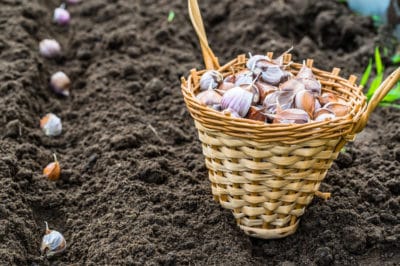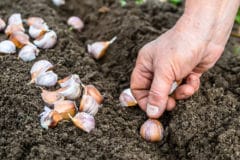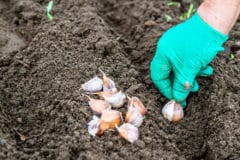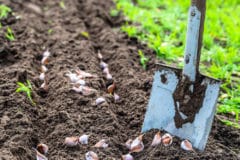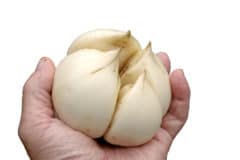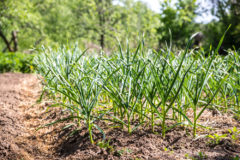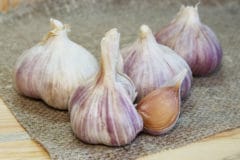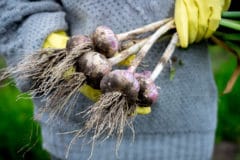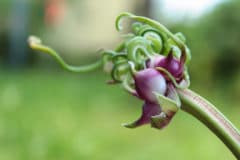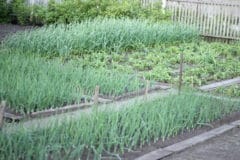Garlic Growing Basics
Garlic needs lots of nutrients and moisture while growing. Prepare the soil in fall for next spring’s growth by adding well-rotted leaf mold, aged manure or organic compost. Many gardeners also work in a balanced 10-10-10 organic fertilizer. Garlic needs moist soil but it should also drain well – use sand to promote drainage in clay soils. Water the plants whenever the top inch of soil seems dry.
Garlic Varieties for Spring Planting
Most garlic varieties are flexible enough to be planted in spring or fall. However, softneck varieties need less cold exposure and often out-perform hardnecks planted in spring. Here are some possible choices:
- Silver White – silverskin type, very long storing, mild favored.
- Lorz Italian – artichoke type, stores well and generally mild flavored.
- Western Rose – silverskin with strong flavor, good storage qualities.
How to Plant
Although fall-planted garlic should be planted deeply to protect the cloves, spring-planted garlic is usually planted about one inch deep. Some gardeners dig a three-inch deep trench and plant the garlic one inch deep to help promote moisture in the soil. Don’t remove the outer papery covering. Plant cloves with the pointed end up, about three or four inches apart.
Watering Garlic
Garlic likes a steady supply of moisture. Soil that drains well will help prevent soggy soil from heavy spring rains – raised beds are a good idea if you have wet springs. You should give garlic a minimum of one inch of water per week – more in warm, windy weather. Never let the soil dry below the top inch. Watering with seaweed or fish emulsion also adds nutrients.
Harvesting Spring-Planted Garlic
The published maturity date is usually a good indication of when your spring-planted garlic will be ready. However, weather can also affect maturity, especially in cold, wet springs. As the cloves develop, the bottom leaves of the plant will begin to turn brown and wither. When the plant has approximately half dry and half green leaves, it’s usually ready to harvest.
Curing Spring-Planted Garlic
Garlic must be cured for storage. Dig the plants, brush off excess soil and hang in a warm, airy place out of direct sunlight. If the weather is wet, you may need to move it indoors and use a fan. Let dry (cure) for about three or four weeks. Softneck garlic can be braided for storage after it has cured.
